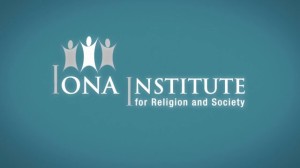
By Ann Marie Foley - 30 September, 2014
 David Quinn of the Iona Institute and Fr Vincent Twomey, Professor Emeritus of Moral Theology at Maynooth, are among a group of international marriage experts and advocates who have written an open letter to members of the Synod on the Family which begins in Rome this coming weekend.
David Quinn of the Iona Institute and Fr Vincent Twomey, Professor Emeritus of Moral Theology at Maynooth, are among a group of international marriage experts and advocates who have written an open letter to members of the Synod on the Family which begins in Rome this coming weekend.
In addition to the two Irish signatories, the letter has also been signed by people such as Professor Robert George of Princeton University and Professor Mary-Ann Glendon of Harvard University.
The letter’s essential message is that children need marriage and children need their mothers and fathers to raise them together.
The signatories address both the Holy Father and those who will be present at the synod.
They thank the Pope for how he has “captured the world’s attention and so much good will for the Christian faith” and welcome the decision to convene an Extraordinary Synod of Bishops to examine the challenges to marriage and the family.
“Like each of you, we believe the family is, with the Church itself, the greatest institutional manifestation of Christ’s love. For those who wish to love as He would have us love, marriage and the family are indispensable, both as vehicles of salvation and as bulwarks of human society,” they state.
This Synod is an opportunity to express timeless truths about marriage, they suggest in the letter, and add that men and women need to hear the truth about why they get married in the first place and when married why they should remain faithful to each other throughout their lives.
When marriage gets tough the Church should be a support, not just for individual spouses, but for the marriage itself.
Referring to the Holy Father’s emphasis on a new evangelisation within the Church and how this means getting “involved by word and deed in people’s daily lives”, they suggest that in the context of marriage and family life these words are a call to personal responsibility, not only for one’s own family, but for the marriages of relatives and friends, those in local churches and schools.
The letter quotes a 2013 Child Trends international report which states that there are “dramatic” increases in cohabitation, divorce, and non-marital childbearing in the Americas, Europe, and Oceania over the last four decades.
Each of these trends has been linked to poverty and poor economic mobility, and welfare – for women and children, in particular.
Among existing marriages, many are fragile and strained. 40-50% of all first marriages in the US are projected to end in divorce, and second marriages fare worse so the problem may be less about low marital quality, and more about weak commitment.
 The consequences of divorce and cohabitation for children and adults range from poverty and lower educational achievement to poorer physical health; from lower marital commitment in adulthood to earlier death.
The consequences of divorce and cohabitation for children and adults range from poverty and lower educational achievement to poorer physical health; from lower marital commitment in adulthood to earlier death.
Every nation is unique but studies show that the impact of these trends spans the globe including countries such as: China, Finland, Sweden, Uruguay, Mexico, Greece, Africa, and East Asian Pacific nations.
Pornography and so-called “no fault divorce” laws in the US and many other nations have contributed to divorce.
However, the letter’s signatories say they have not lost their joy, hope and commitment to marriage. They offer a number of suggestions:
• Educate seminarians, provide mandatory courses covering social science evidence on the benefits of marriage, threats to marriage, and the consequences of divorce and cohabitation to children and society.
• Train priests to showcase in their homilies the spiritual and social value of marriage, contemporary challenges to it, and parish help for troubled marriages. A recent study found that 72% of American Catholic women say the weekly homily is their primary source for learning about the faith.
• Create small, vibrant networks of strong married couples as mentors at the parish level.
• Encourage and support the reconciliation of married couples who are separated or have been divorced by civil courts.
• Request bishops worldwide to initiate regular prayers during Sunday Mass for strong, faithful marriages.
• Support efforts to preserve what is right and just in existing marriage laws, and resist any changes to those laws that would further weaken the institution.
• Support religious freedom in divorce courts. Many do not know that religious freedom is routinely violated by divorce judges who ignore or demean the views of a spouse who seeks to save a marriage, keep the children in a religious school